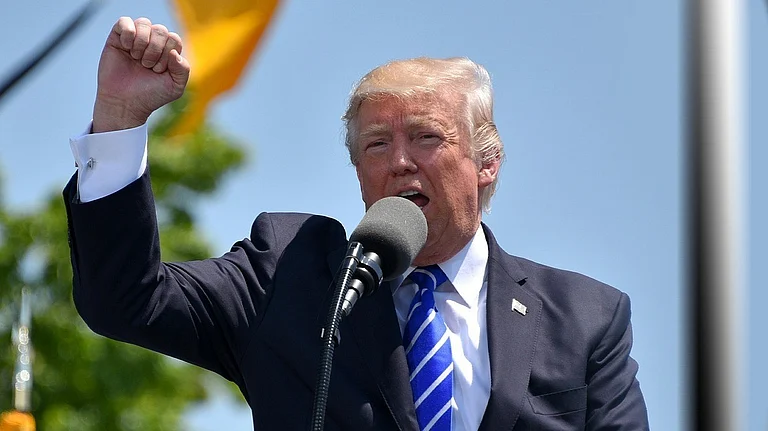Canadian Prime Minister Justin Trudeau raised concerns regarding the ongoing tensions between Canada and India. Trudeau highlighted that the upcoming meeting of national security advisors of the two countries in Singapore is crucial. On the same day, October 14, the ministry of external affairs (MEA) expelled six Canadian diplomats and asked the Indian High Commissioner to Canada to return, which has further embittered diplomatic ties between the two nations.
While speaking at a press conference on Monday, Trudeau cited the evidence collected by the Royal Canadian Mounted Police and accused the Indian government of criminal activities in Canada.
“The Indian government made a fundamental error in thinking that they could engage in supporting criminal activities against Canadians, here on Canadian soil, be it murder or extortion. This is absolutely unacceptable,” said Trudeau.
Trudeau further mentioned that the Canadian intelligence agencies found the Indian government’s involvement in the murder of Hardeep Singh Nijjar and flagged the same to the Indian government. The close business ties between the people of the two countries drove him to jointly resolve the concerns over national security.
Consequently, the Canadian government shared all information with the Government of India that possibly linked the latter with the Nijjar killing. However, the Indian government has denied all allegations and claimed that the Canadian government’s allegations are baseless.
“The Canadian government has not shared a shred of evidence with the GOI, despite many requests from our side,” said MEA in a press release on October 14.
How will the Ongoing Turmoil Affect Economic Partnership?
The diplomatic ties between the two countries date to 1947 and over the years, have built strong economic ties as well. Despite political tensions, the trade so far hasn’t felt the heat.
According to the Global Trade Research Initiative (GTRI), the bilateral merchandise trade has increased from $8.3 billion in FY23 to $8.4 billion in FY24. India's imports from Canada increased to $4.6 billion, while exports decreased to $3.8 billion.
According to MEA, nearly 600 Canadian companies have presence in India. Indian companies ranging from information technology to natural resources, including Tata Consultancy Services, Infosys, Wipro, etc.
"Indian companies in Canada are active in the field such as Information Technology, software, steel, natural resources and banking sectors," said MEA in a statement.
The ministry also released an exhaustive list of items that are part of Indian exports to Canada, like gems, jewellery, pharmaceutical products, ready-made garments, mechanical appliances, organic chemicals, light engineering goods, iron and steel articles, etc.
Imports from Canada include pulses, newsprint, wood pulp, asbestos, iron scrap, copper, minerals and industrial chemicals, etc.
Canada is also one of the most preferred destinations for higher education by Indian students. According to the National Foundation for American Policy (NFAP), Indian students represent nearly 40 per cent of all international students in Canada.
Although the trade presently remains unaffected, the study by GTRI suggests that if the dispute carries on for long, it will have economic consequences for both countries.
"For now, the resilience of trade between India and Canada highlights an important lesson -- diplomatic tensions, while damaging, do not always spell disaster for economic ties. But as this dispute drags on, both nations will need to carefully manage their actions to avoid a full-blown economic fallout," said GTRI founder Ajay Srivastava.
How did Hardeep Singh Nijjar’s Murder Escalate India-Canada Tensions?
Hardeep Singh Nijjar was born in Punjab and later moved to Canada. Consequently, he acquired Canadian citizenship. Nijjar became a popular face in Canada due to his advocacy for the creation of Khalistan, a separate homeland for Sikhs. The Indian government declared him a terrorist in 2020 for his involvement with the banned terror organisation, Khalistan Tiger Force (KTF).
He was shot dead in June last year in front of a Sikh temple in Canada. His murder marked the beginning of strained relations between the two nations, particularly after the Canadian PM alleged in Parliament that the Indian government agents were linked to the death of Nijjar.
(With inputs from PTI)
































